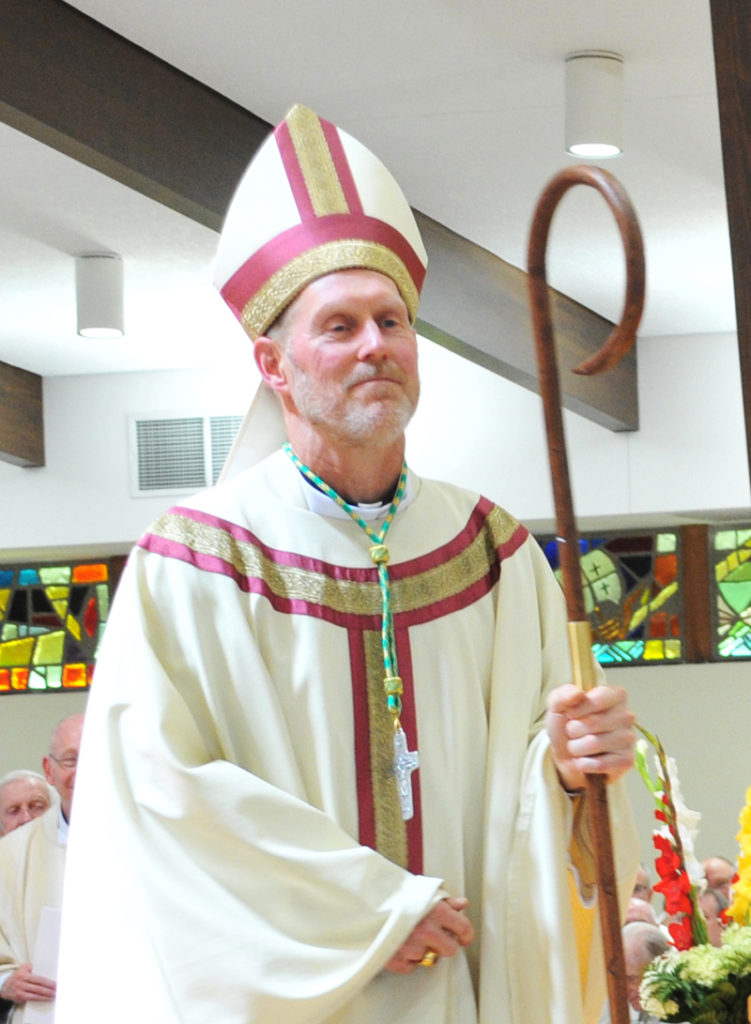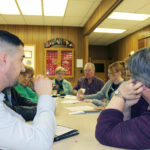By Corinne Winter
As we looked forward to the ordination and installation of our new bishop, we appropriately heard many thoughts about the personal gifts that Bishop Martin Amos brought to our diocese and about those that Bishop Thomas Zinkula is bringing. We have a great deal for which we can be grateful. Along with those thoughts, I propose that we also spend some time reflecting on the significance of the episcopacy and of the local church for whom the diocesan bishop is the sign of unity.

Bishop Thomas Zinkula
The office and work of the bishop was one of the key areas in which the church underwent significant renewal after Vatican II. In the time leading up to that council, many of us thought of the bishop mostly as an administrator or ruler — a rather distant figure who deserved our obedience and as a representative of the authority of the pope, of the church and, ultimately, of Christ. While it is certainly true that the bishop exercises leadership and authority, we often neglected even more central aspects of the bishop’s work. Christus Dominus, the Vatican document on the episcopacy, begins by stressing the role of bishops as pastors who perpetuate the pastoral work of Christ.
The document on the church describes the bishop as the “steward of the grace of the priesthood” of Christ, which is shared by all ordained priests and in a different way by all members of the church (LG 26).
As pastor and priest, the bishop of the diocese exercises his ministry most clearly in the presiding at the Eucharist and in preaching the Gospel. We are reminded as we reflect on the ordination of the bishop that as a community of faith, we believe Christ makes us one through the Gospel and in the Eucharist. Thus the sacramental and teaching roles of the bishop deserve greater attention than they tended to receive prior to the council.
During the prayer of ordination, the Book of the Gospels is held over the head of the bishop-elect. Later, he is handed that book and exhorted to “preach the Word of God with all patience and sound teaching.” The bishop has a special responsibility to call us to learn and to be faithful to the truth which is found in the Gospels as well as in the rest of Scripture and in the tradition of the church. As we hear the bishop exhorted to take his responsibility seriously, we are reminded of our duty to continue studying, learning and contemplating the truth.
The Eucharist is described in the Vatican documents as the sign and source of our unity. While we can’t say with certainty who presided at the very earliest Christian eucharistic celebrations, by the end of the first century, the bishop was generally regarded as the ordinary presider. Sometimes when a presbyter was acting as celebrant, unity with the bishop was expressed by placing a fragment of bread from the bishop’s Mass into the chalice. The bishop is to be responsible in a particular way for the celebration of the Eucharist in communion with the whole church. Here again, the bishop’s calling is directly related to our own. How can we grow in fidelity and devotion to the Eucharist?
Installation of a bishop in our diocese reminds us of our identity as a local church. A diocese is defined as a particular church in which “the one, holy, catholic, and apostolic church is present and active.” While theologians continue to discuss the exact relationship between the local and the universal church, we agree that Vatican II placed a renewed emphasis on the former. It is within the local church (diocese) that we learn and live out our Catholic faith.
Relative to the population of the Davenport Diocese, only a few members were able to attend the ordination and installation of Bishop Zinkula. But let us each take time to give thanks for the church, especially the local church as we experience this transition.
(Corinne Winter is a professor-emeritus of St. Ambrose University, Davenport.)











